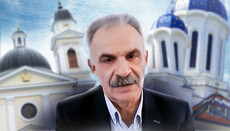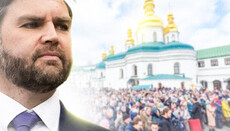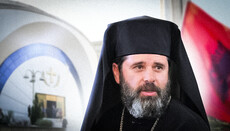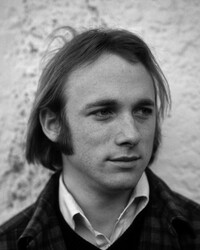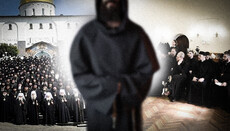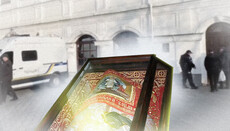Tomos for the Kiev Patriarchate: We say OCU – we mean UOC KP
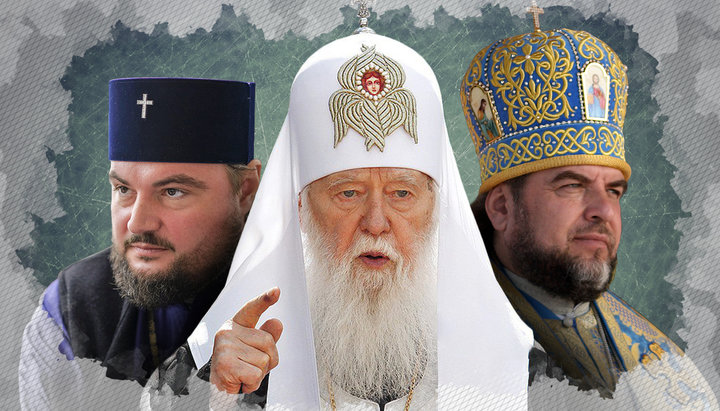
Over a month and a half have passed since the OCU was born. But the UOC KP turns out to be alive while the UOC communities, transferred to OCU, are registered as the KP.
After Petro Poroshenko had brought the Tomos on autocephaly to Kiev, a wave of seizures of temples of the Ukrainian Orthodox Church began in Ukraine, which is tolerantly called by the authorities and media as transitions. All these churches allegedly join the newly-established OCU – the Orthodox Church of Ukraine.
Petro Poroshenko: “Look – every day, without any interference from the authorities, parishes join our Church”!
The OCU, which Phanar calls “holy church of Ukraine”, was born on December 15, 2018 at the so-called "Unification Council" as a result of the merger of the Kiev Patriarchate and the UAOC. At the same time, it was stated that these two structures agreed to voluntary dissolution in the run-up to the council.
Eustraty Zoria, the UOC KP spokesman, said on December 15: “Before the beginning of the “Unification Council”, the two Churches participating in it — the Kiev Patriarchate and the autocephalous Church — held their councils and decided to dissolve themselves. And by means of merging they formed a single local church. So de jure, this new Church is a successor of the autocephalous Church and the Church of the Kiev Patriarchate.”
It would seem everything is clear: the Kiev Patriarchate and the UAOC no longer exist. There is only OCU, and it is the structure that parishes of the Ukrainian Orthodox Church are now being transferred to.
However, things are not that simple.
More than a month and a half has passed since the actual formation of the OCU, and there is no talk about any voluntary dissolution of the Kiev Patriarchate.
In the registry of the Ministry of Justice in front of the Patriarchate of the UOC KP, it is clearly written – "it is not in the process of liquidation.”
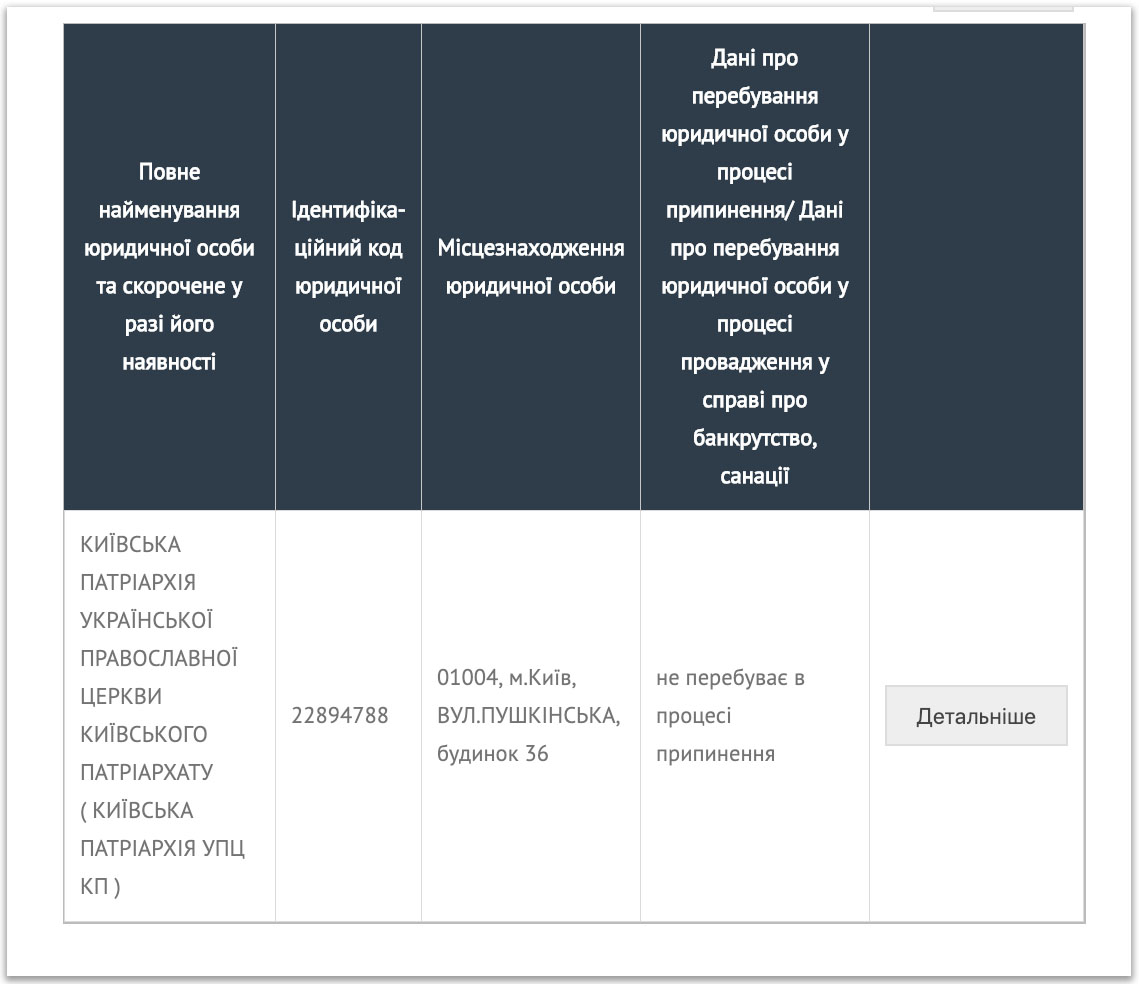
The head of the Legal Department of the UOC, Protopriest Alexander Bakhov: “As of today, there is no information in the state registry about the process of liquidation because in accordance with the law, an organization that makes a decision on liquidation is obliged to contact the state registrar within 3 days and supply information that they have made such a decision. But at present day there is no relevant information in the sections of those organizations on the website of the Ministry of Justice.”
Actually, the fact that the Kiev Patriarchate has not disappeared anywhere confirms the very existence of its official website. One can make sure that there is no mention of either the OCU or the holy church of Ukraine. Only the Kiev Patriarchate and the Most Holy Patriarch Filaret who continues to lead this Church. Here is a message where Filaret meets with rectors of Kiev temples and gives them indispensible advice.
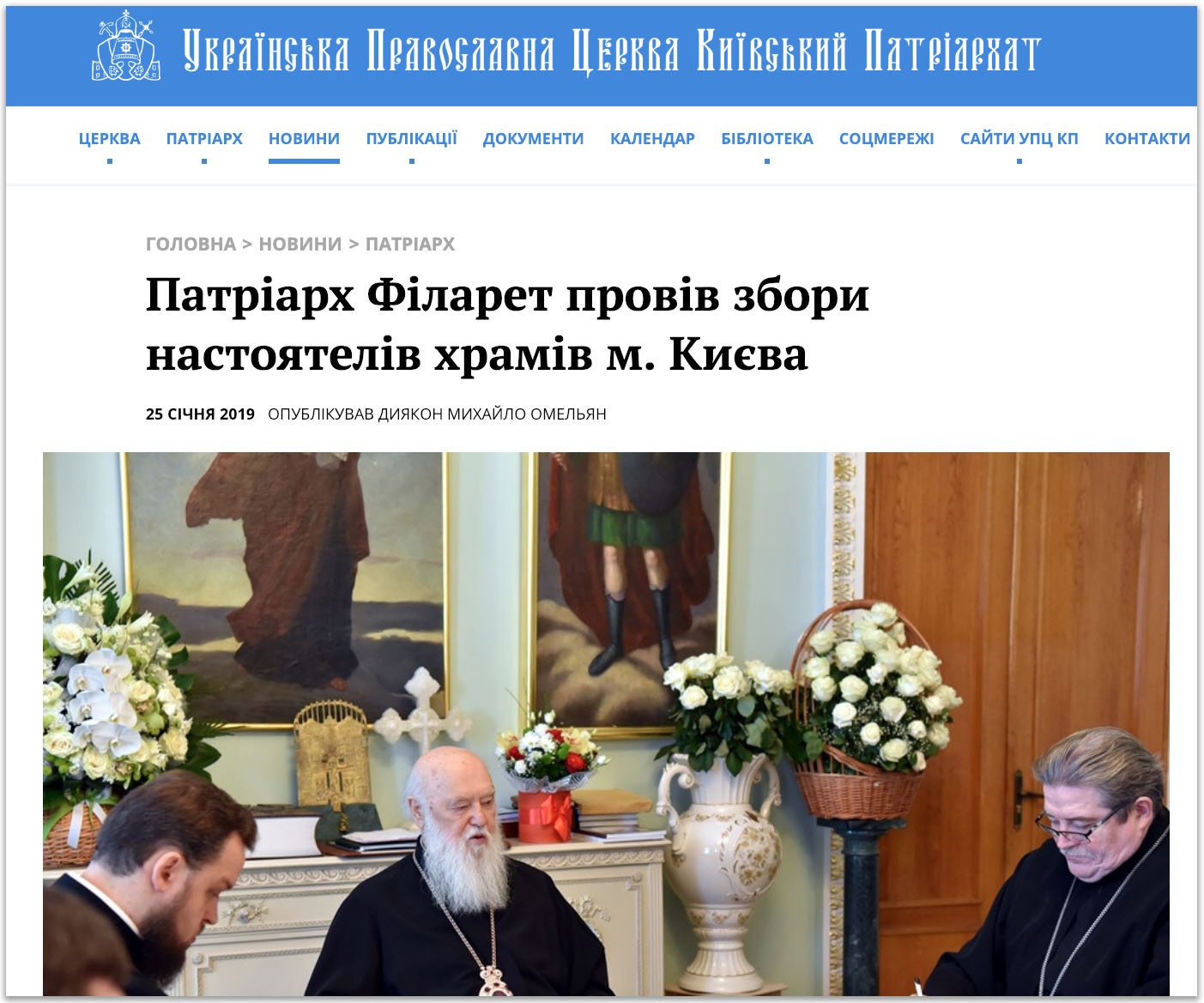
Here is a decree of Filaret on the letterhead of the Kiev Patriarchate where he orders to make a liturgical mention in the first place of him, Patriarch of Kiev and All Rus-Ukraine, and only then of Epiphany.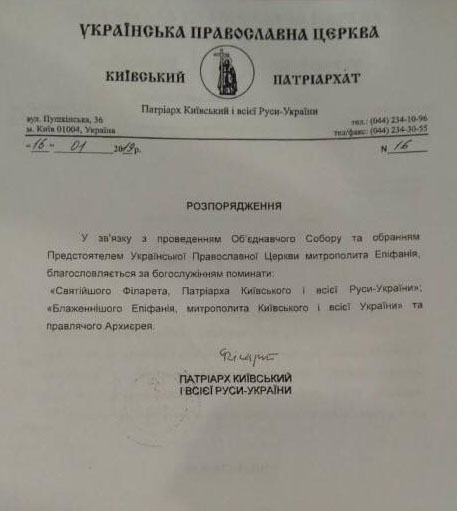
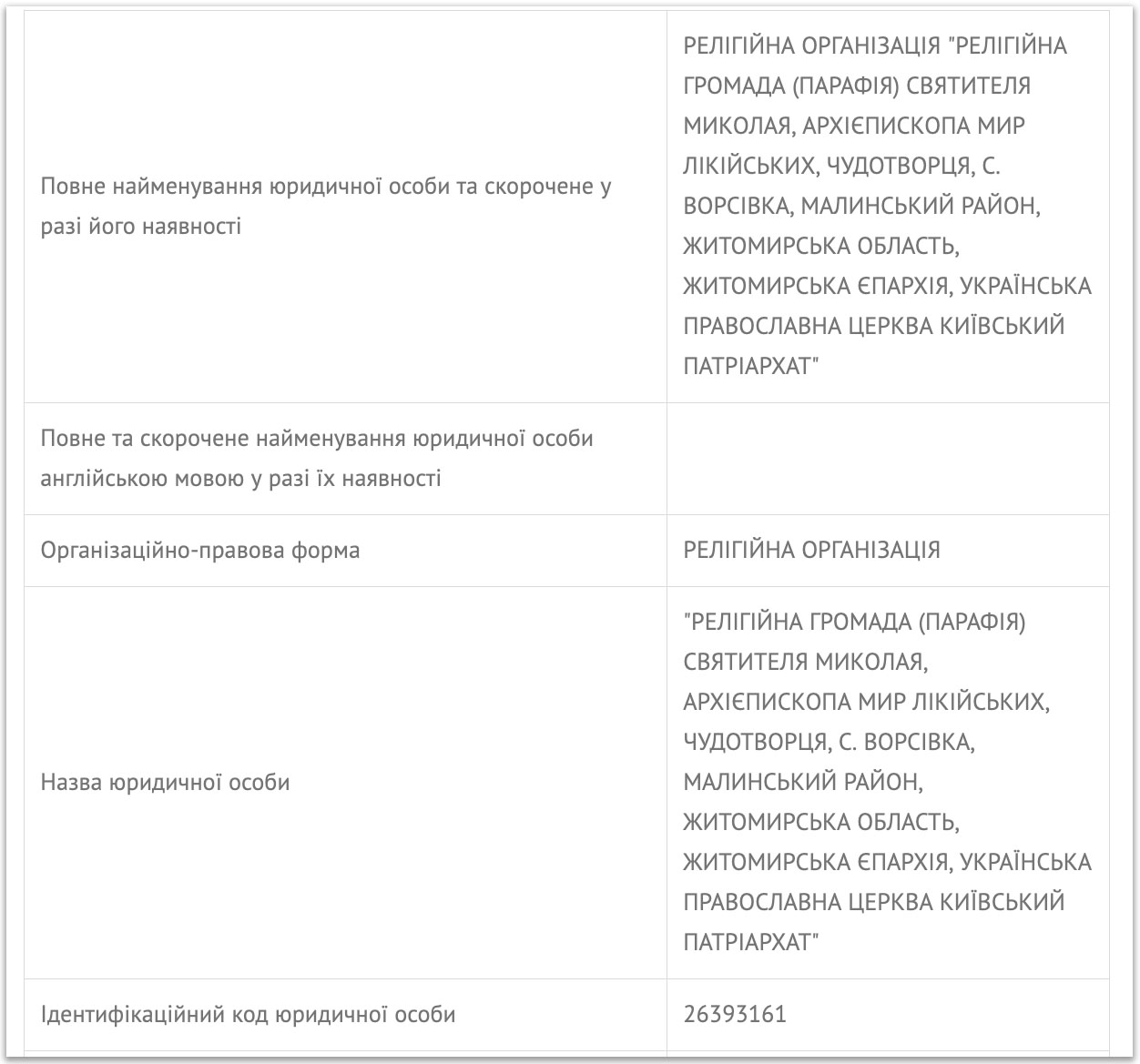
It means after the nominal creation of the OCU, absolutely nothing has changed. The UOC KP existed and continues to exist. Filaret led it and continues to lead it.
However, the question arises: if there was no voluntary dissolution of the Kiev Patriarchate and the UAOC, then does the OCU, which the authorities are talking about with such fanfare, really exist?
UOC versus UOC (OCU)
On January 30, the Kiev Metropolis of the Ukrainian Orthodox Church was registered in the Ministry of Justice, in brackets “The Orthodox Church of Ukraine”. In fact, it completely repeats the name of the canonical Church, with the exception of the bashfully added text in brackets. The purpose of this name is obvious – to replace the real Ukrainian Orthodox Church. And it is not difficult to guess this was done at the behest of Filaret, who says that the Tomos was not given to OCU, but to the Kiev Patriarchate and demands that his assistants eradicate the name of the OCU and use only the Ukrainian Orthodox Church.”
Filaret: “It is clear that the Tomos was given to the Kiev Patriarchate. Therefore, it is not a new Church. We have to eradicate this name "Orthodox Church of Ukraine", it is not our name. We are the Ukrainian Orthodox Church. UOC and not OCU! ”
The OCU was registered one and a half month later after its creation. But all this time the parishes have been actively taken away from the Ukrainian Orthodox Church.
Yet, where did they go all this time?
One of the first to be transferred to the OCU with much pomp was the community in the village of Vorsovka, Zhitomir region. The head of Zhitomir Regional State Administration, Igor Gundich, said: “The first community that left the UOC MP and joined the Orthodox Church of Ukraine has already received official confirmation. Today I signed a decree which approved their statute"!
But where in reality the community passed can be found in the same registry on the website of the Ministry of Justice.
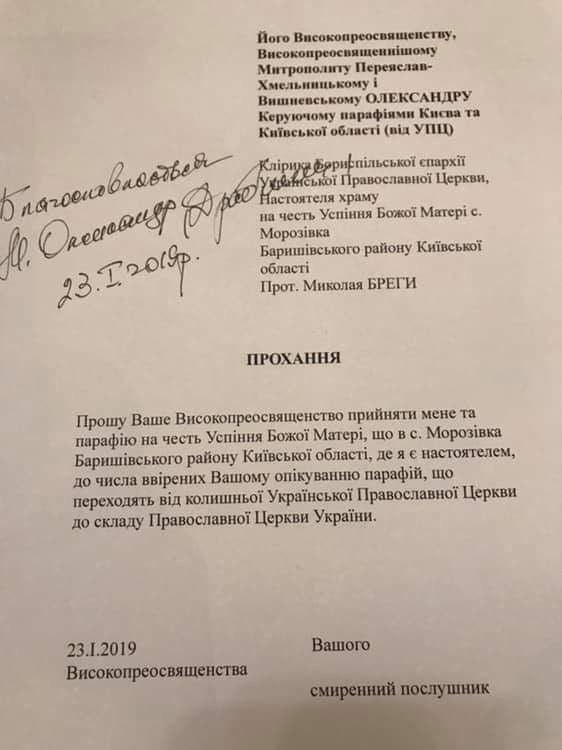
There is no OCU in all documents but there is Kiev Patriarchate!
This is exactly the case with other transitions.
The head of the UOC Legal Department, Protopriest Alexander Bakhov: “And it is completely obvious that Filaret, having deceived everyone around, is the main beneficiary in this situation. They were not liquidated, parishes are registered for the Kiev Patriarchate and, as it turns out, even the Tomos was given to the Kiev Patriarchate, although this is not true.”
It turns out that in the years after Euromaidan, the Kiev Patriarchate, with great difficulty, managed to seize less than 40 temples, and now, only six weeks after the “unification council”, it has already reached about a hundred.
At the same time, it is not about it is not about voluntary transitions at all. They are speaking about love but acting as common raiders.
Lawlessness two ex-metropolitans of the UOC
Filaret, by proxy, takes over temples in favor of its structure. But no one expects anything else from him. However, there are other figures who amid this chaos commit lawlessness in their own interests.
Member of the Inter-Council Presence of the Russian Church, former Chairman of the Department for External Church Relations of the UOC and vociferous accuser of Filaret’s lawlessness, Metropolitan Alexander Drabinko, banned in the ministry.
Together with Metropolitan Simeon, he appeared on December 15 at the “Unification Council” of the OCU and since then has frenzied his activity.
Journalist of Priamoy TV channel: “Having passed to a new Church, have you retained your title"?
Metropolitan Alexander (Drabinko): “Yes, I have retained both the title and the position. With the title of Pereyaslav-Khmelnitsky and Vishniovoye I served for many years under the leadership of the deceased Metropolitan Vladimir, and later Metropolitan Onufriy."
In the UOC, Drabinko did indeed have the title of Metropolitan Pereyaslav-Khmelnitsky and Vishniovoye however, he was a vicar bishop, i.e. a bishop who does not have the right to interfere in the administration of parishes.
However, having joined the virtual OCU, Met. Alexander (Drabinko) is engaged in the actual transfer of communities of the Ukrainian Orthodox Church to the OCU. Moreover, he does this not in the territory indicated in his title but in various localities of Ukraine: Kolomyia, Zaporozhye, Starobelsk in Lugansk region, and so on.
Even the patriotic press wonders why those who wish to change jurisdiction, for example, in Kolomyia Cathedral, did not turn to the local bishop of the Kiev Patriarchate. The local edition Mirror Media writes: “why to Drabinko, and not to the bishop of Kolomyia and Kosov Julian, or to the Metropolitan of all Ukraine Epiphany himself”?
The answer to this question can be found in the header of the appeal, which Drabinko wrote on behalf of the rector of the community in the village of Morozovka, Baryshevka district, Nikolay Brega: "To His Eminence Metropolitan Alexander, the Chancellor of Kiev and Kiev region on behalf of the UOC."

Does it mean that Drabinko has been appointed, or has appointed himself in the OCU as the one administering the transitions of communities from the UOC? How legal is this? From the point of view of the canonical Church, it is absolutely lawless. From the point of view of the OCU, it is absolutely regular. No less regular is the fact that Alexander Drabinko gets into an obvious forgery. After all, the petition, addressed to him on behalf of the parish rector, was obviously written by Drabinko himself. There is no signature below, moreover, Father Nikolai himself stated that he did not write or sign any petitions.
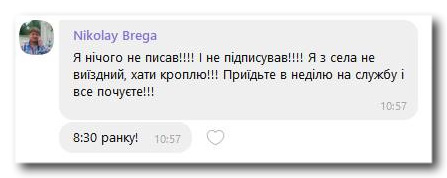
Interestingly, for another "blessing", Metropolitan Alexander uses the form of the Foundation of His Beatitude Vladimir, the deceased Metropolitan of Kiev, as well as the seal of the vicar of Kiev Metropolis of the UOC. When directing the former UOC cleric Igor Savva to serve in Zaporozhye, Alexander Drabinko gave him an antimension, blessed by Patriarch Kiril of the Russian Orthodox Church.
For the time being, Alexander Drabinko is only banned in the ministry and still has the rank of Metropolitan. However, this behavior is hardly compatible with the episcopal rank and Metropolitan Alexander risks becoming a layman – Alexander Drabinko.
Metropolitan Alexander (Drabinko): “someone else also writes: looking at your behavior, Metropolitan Vladimir turns over in his grave.”
Meanwhile, Vinnitsa Metropolitan Simeon sued the new ruling bishop, Archbishop Varsonofy, in order to prevent him from administering the diocese.
Archbishop Varsonofy: “He wants through court to sue all statutory documents, property of Vinnitsa diocese, all the available assets. If we speak in secular language, then this is a raider attack on Vinnitsa diocese, via the courts.”
Why do both Simeon and Metropolitan Alexander commit such lawless and, frankly speaking, unethical, not at all Christian acts?
Again, the reason must be sought in the words of Filaret about who the Tomos was given to: “whom should the Tomos be given to — to these two Moscow bishops without parishes”?
Having betrayed their Church, the two metropolitans in fact have become part of the Kiev Patriarchate and were compelled to play by the rules common in their new family. And in order to survive in the new structure, the renegades feverishly seek to accumulate parishes and gain some weight. But will it make them equals?
The head of the Legal Department of the UOC Protopriest Alexander Bakhov: “They will not be considered as their own people there. They will still remain Moscow bishops and Moscow priests. Moreover, there is information that a separate deanery is going to be created to be filled exclusively with the priests who have moved from the UOC. That is, the new church structure somehow wants to separate the UOC defectors from the other part of the OCU. As far as I understand, the attitude towards them is not going to change.”
Conclusions
We know that in the Gospel one can find an answer to almost every question or bewilderment. Looking at what the leaders of the new Church are proposing to us, the words of the Savior involuntarily come to mind – “you will know them by their fruits” (Matt.7.16). Do we see fruits here that can help enter the kingdom of heaven? Hardly.
Cunning, hypocrisy and deceit are lucrative in the earthly life but completely useless and even harmful in Heaven. “Do people pick grapes from thornbushes, or figs from thistles?” (Matt.7.16), the Savior asks us. And trusting our spiritual life to people who call themselves church hierarchs, we need to ask ourselves this question each time.
